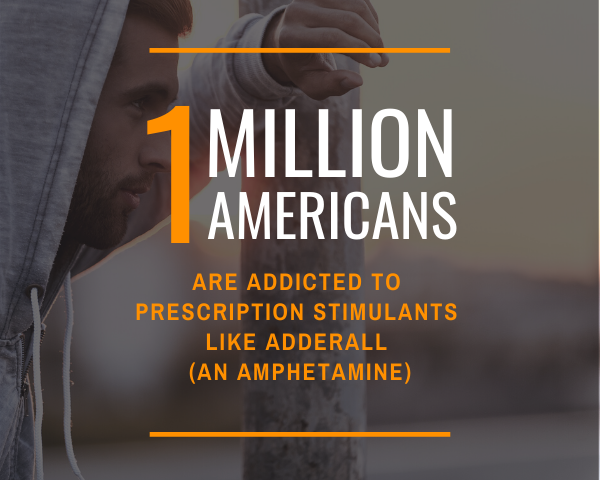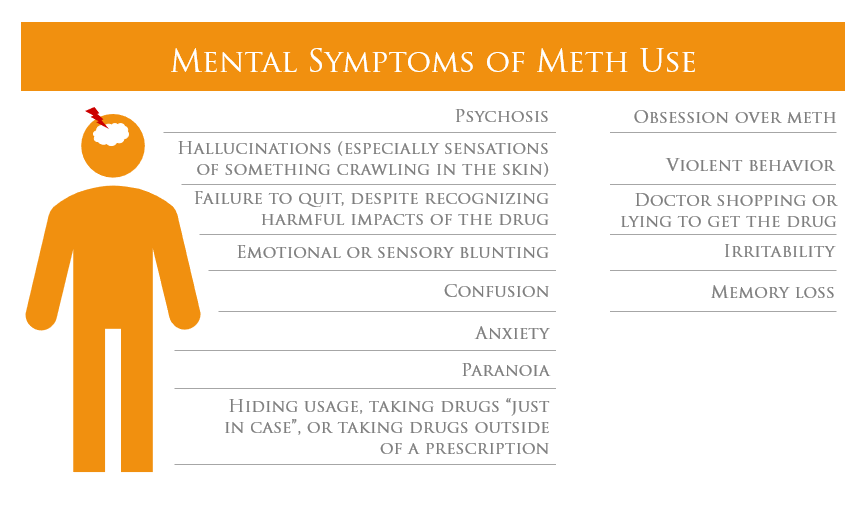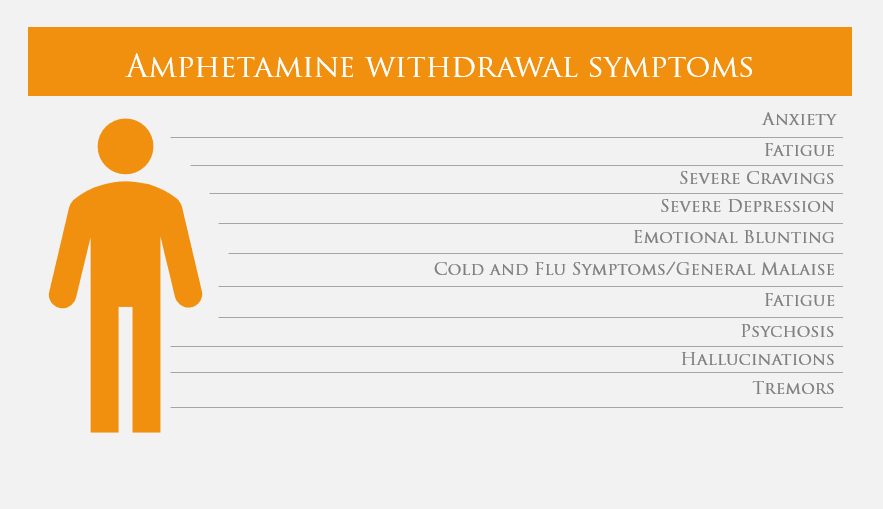
Amphetamines are among the most commonly prescribed drugs in the world. With uses ranging from treating attention deficit hyperactive disorder to treating narcolepsy, these drugs offer a valuable addition to western medicine. At the same time, they’re one of the most abused drugs in the world, with recreational users taking them as stimulants for performance, mood enhancement, wakefulness, and euphoria. And, most importantly, while relatively safe in small, clinically prescribed doses, large doses of amphetamines can cause deleterious effects to the mind and body. One of the most noticeable of these is amphetamine addiction, where an individual is mentally, physically, and behaviorally dependent on a drug. The National Survey on Drug Use and Health estimates that more than 1 million Americans are addicted to prescription stimulants like Adderall (an amphetamine).
If you or a loved one is struggling with amphetamines, it’s important to get help.
Amphetamines are dangerous, cause major mental and physical health problems, and effects worsen as abuse continues. The Gooden Center offers an amphetamine addiction recovery program, with a focus on overcoming the mental and behavioral aspects of addiction. Our Pasadena rehab center for amphetamine use is designed to be a home away from home, so that every patient can recover in dignity and comfort. Contact us for a free consultation, help with insurance, or to request a free tour of our rehab center, we’re happy to help.
Symptoms of Amphetamine Addiction
Amphetamine is a central nervous system stimulant. While high, individuals act “hyper”, as though they are full of energy, confident, and feel good. Many will experience euphoria, feelings of power, and be unresponsive to touch or requests for attention. In most cases, individuals with amphetamine prescriptions, such as Adderall, will never have a high enough dose for these symptoms to take effect. Micro dosing is the process of using a very strong drug to impact the brain in desired ways, but in tiny, barely noticeable amounts. When someone abuses the drug, they take significantly more than is safe and begin to develop major side effects. For amphetamines, these can include massive changes to physical appearance (weight loss, rotting teeth), personality (paranoia, aggression, violence, anxiety), and behavior (repetitive movements, tics, jerky movements, lack of focus). If your loved one develops any of these physical symptoms, they need help, whether or not they are addicted to amphetamines.
Physical Symptoms of Amphetamine Use
Short-term doses of amphetamines can be difficult to tell apart from a stimulant or a person being particularly energetic or wakeful. Over the long-term, side-effects will result in more extreme and visible physical changes as amphetamines negatively impact the central nervous system, GABBA receptors, and neural pathways.

Mental Symptoms of Meth Use
Amphetamines stimulate the central nervous system, which functions to both agitate neural pathways and prevent recovery through sleep or rest. Over time, long periods of abuse result in severe damage to the brain, GABBA absorption, dopamine absorption, etc.

Amphetamine Withdrawal
Amphetamine is one of the most difficult drugs to withdraw from, in part because of its intense physical withdrawal. Most substances that interact with the central nervous system will result in seizures during withdrawal, and amphetamines are no different. Amphetamine withdrawal related seizures account for a significant portion of withdrawal related seizures.

In most cases, amphetamine withdrawal begins about 12 hours after the final dose and extends as long as 8 weeks. For individuals taking an extended-release amphetamine, this timeframe could more than double.
The amphetamine withdrawal timeline for “standard release” drugs is typically as follows:
Amphetamine withdrawal is drawn out over 4-8 weeks, difficult, mentally and emotionally traumatic, and painful. Most individuals need emotional support and guidance during this time, or they are a high risk of relapse.
Amphetamine Addiction Treatment
Amphetamines are an extremely difficult addiction to beat, but it can be done. At the Gooden Center, our approach focuses on empowering individuals to grow, to heal, and to improve themselves so that they can recover, and they can live a healthy life without amphetamines. Our focus on science-based addiction treatment like behavioral therapy, personalized treatment, and group support means we offer the best-possible outcomes for patients. Our focus on mental health and mental health treatment makes us an ideal choice for individuals with a co-occurring disorder, such as ADHD and addiction. And, our empathetic and supportive approach means our rehab center an ideal place to heal.

